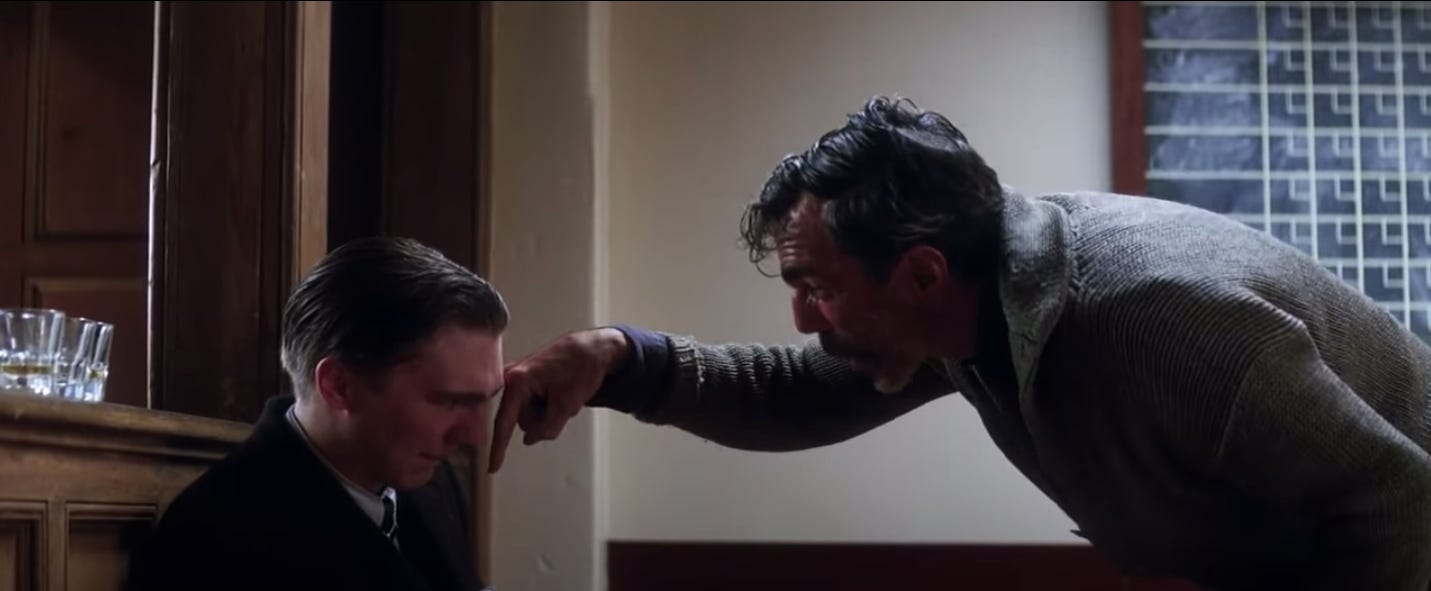Learning to Read
Back to Basics, Y'all
Let me paint a picture: It was a dark and stormy day.
Okay, that’s more of a stick figure drawing, but you get the idea.
On a dull and grey Sunday with nothing much to do, mi esposa and I found ourselves roaming the bowels of Atlanta Vintage Books. We petted the cats, dug through the bargain shelves, and marvelled at the maze-like and sometimes arbitrary organizational scheme. It was glorious. We emerged with a stack of books almost a foot high.
I’ve spent a lot of time in bookstores. Not just shopping, but as a business partner with a bookseller trade group and even as a touring author. I love all types—the tiny, well-curated stores that let you know exactly who the seller is. The efficient ones, that have the Times fiction list on a table at the entrance. But the ones I’ve always loved the most are labyrinthine—converted houses or even barns, with rooms full of forgotten titles that have been out of print for decades. That’s what Atlanta Vintage Books is, despite its strip mall storefront.
It’s Time, Time, Time that You Love
These stores almost always cats. And charming little signs with quotes, like, “Books are mirrors: You only see in them what you already have inside you” or “Think before you speak. Read before you think.” For years, I’ve joked that the worst possible quote to hang in a bookstore would be, “We buy books because we think we’re buying the time to read books.”
The truth of that idea is enough to send you out of the store empty-handed and depressed. It’s a reminder of all those unread books on your shelf, those unkept promises to yourself to sit and immerse yourself in another’s imagination.
According to the internet, that quote is either Arthur Schopenhauer or Warren Zevon. Part of me wants it to be Schopenhauer, because it makes me sound smarter to quote him. On the other hand, I have all of Zevon’s records on vinyl and he used to hang around with Igor Stravinsky, so maybe he makes me sound smart too. All those guys are sleeping now.
Wake Up Child, Pay Attention!
In the internet age, the thing that stops us from reading is not only the lack of time, but the lack of attention. We have, for years, allowed glowing screens and the endorphin hits of social media to drain our ability to focus on a simple page of text, like Daniel Day-Lewis drinking our attention milkshake. (Of course, you are reading this on one of those glowing screens. Irony is not quite dead yet.)
This drain in focus has been insidious, and in retrospect, infuriating. I don’t remember signing up for it, but over the decades of constant smartphone screens and social media posts, we’ve traded our ability to fix our mind on a quiet thing for fleeting little endorphin hits.
Reading isn’t as easy as it once was. Like a sugar-high eight-year-old at a fancy adult dinner table, we squirm and fidget after a few minutes with a book. Maybe the Zevon quote should be that we buy books because we think we’re buying the ability to read them.
The ability to focus cannot be bought, though. It must be reclaimed, nurtured, and protected. Nurtured. Protected. There’s no shortage of advice on dealing with our screen addictions. I like to take a more carrot than stick approach, bribing myself into prolonged time with just the page.
Reclaiming My Time
Recently, I’ve set aside a space in our home for reading—a largely device-free room. A couple of early evenings each week, I’ll put on some good music, pour myself a drink, make a snack, and sit in my favorite chair. The Yankee child in me looks out into the sunlight and thinks I should be outside, but the Atlanta heat tells me to sit inside for a while. Call it an old man’s happy hour. Sometimes, I can feel time is stretching for me, that I’m finding myself in that long-lost flow state. It feels like a triumph.
For many, this time surely sounds like an absurd indulgence. There’s so much to do. Who has the time? After all, we’re buying the books, not the time to read the books.
But the real measure of our lives is the way we choose to spend our time. I understand that we all have our responsibilities, that they come to us unbidden and often unwanted. The truth is that we prioritize other things, or allow them to claim our time. We become the things that we allow to consume our days. And that ability to sit and concentrate on the printed page is who I want to be.
Holding onto these simple things is a challenge. It requires a deliberate, intentional effort. It’s not nostalgia that draws us back to the simple things—it’s instinct. It’s the sense that they are the genuine, worthwhile pleasure.
Song of the Week
Richard Thompson converted to Sufi Islam in the early 70s, and many of his songs come off as a type of secular prayer. How Will I Ever Be Simple Again? moreso than the rest. I was working at Chelsea Records in Ithaca, NY when this record came out, and the store’s owner played it over and over. The whole album has become part of my DNA in the years since, but this song stands out among so many great ones.




Hi Daren! How nice to find you here! I agree…so many books, not enough time. I remember when we went to your book festival…you started it, and now it’s a long time, well-loved tradition. I hope you are doing well, old friend! ☺️🤗
I am one of the few people I know who reads a book in my hand. I do think that listening to a book is reading, but turning pages is part of paying attention.